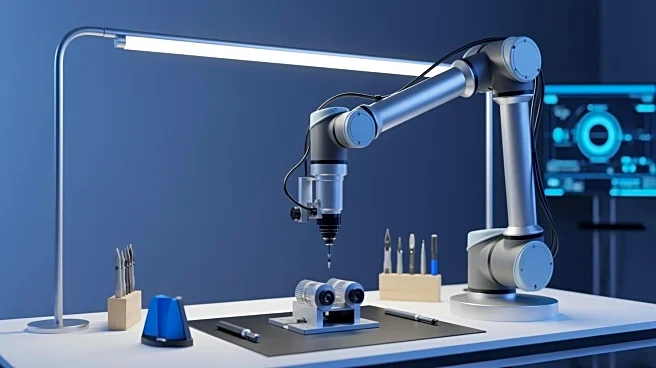What's Happening?
A recent survey conducted by Chainguard involving 1,200 software engineers and technology leaders has revealed significant insights into the current state of engineering productivity. The survey indicates
that 72% of engineers feel overwhelmed by the demands on their time, which hampers their ability to focus on developing new features. Additionally, 88% of respondents reported that switching between different tools disrupts their productivity, with 44% experiencing a notable loss of focus. However, the survey also highlights a positive trend: among organizations that have mostly or fully automated their workflows, 94% of engineers report spending the majority of their time on work that energizes them. This suggests that automation not only reduces manual effort but also allows teams to reclaim time and focus for more creative and impactful work.
Why It's Important?
The findings from Chainguard's survey underscore the critical role of automation in enhancing productivity within the engineering sector. As engineers face increasing demands and tool-switching challenges, automation emerges as a key solution to streamline workflows and reduce friction. This shift is particularly significant for U.S. industries, where innovation and efficiency are paramount. Organizations that embrace automation can potentially gain a competitive edge by enabling their engineers to focus on high-value tasks, thereby driving innovation and progress. The survey's insights could influence how companies prioritize their technology investments and workflow strategies, ultimately impacting the broader tech industry and its capacity for innovation.
What's Next?
As organizations continue to recognize the benefits of automation, it is likely that more companies will invest in automating their workflows to enhance productivity. This trend could lead to a reevaluation of existing tools and processes, with a focus on reducing tool-sprawl and optimizing the use of technology. Stakeholders, including technology leaders and policymakers, may also consider the implications of these findings for workforce development and training, ensuring that engineers are equipped to leverage automation effectively. The ongoing dialogue around automation and productivity is expected to shape future strategies in the tech industry.









